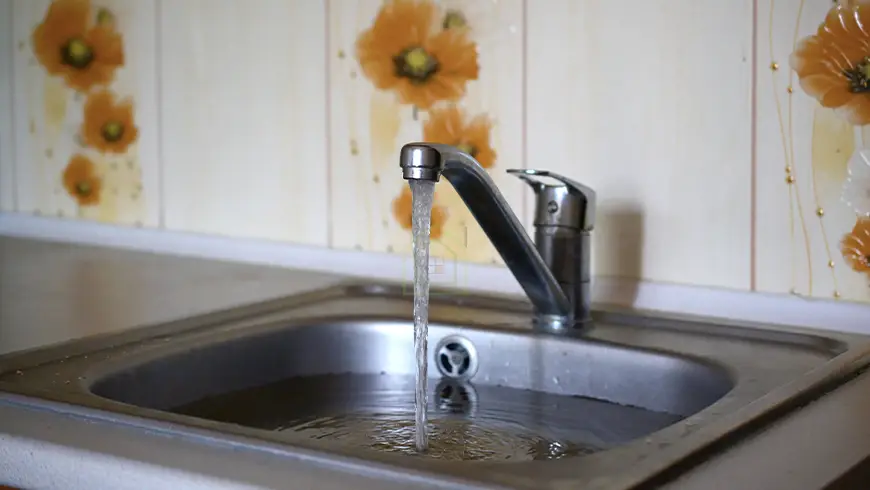An Overview of Housing Disrepair
Repair issues in rental properties may significantly impact residents’ well-being, security, and standard of living. This complete guide will explain housing disrepair, how to identify it, what to do when making a claim, common causes, and why taking care of these problems right away is essential.
Housing disrepair is when a property’s poor condition makes it unsuitable for living or greatly affects the tenant’s life quality. Problems like mould and dampness, structural issues, water leakage or heating, electricity risks, and pest infestations can arise.
Identifying Housing Disrepair in Your Home
To protect yourself and your family, it is essential to identify signs of housing disrepair in your house. Additionally, some common signs include:
- Damp or mould growth on walls, ceilings, or floors.
- Cracks in walls or ceilings indicate structural issues.
- Leaking roofs or pipes.
- Electrical hazards such as exposed wires or faulty sockets.
- Adequate heating or plumbing systems are needed.
- Pest infestations like rodents or insects.
Different Types of Compensation Available in Housing Disrepair Claims

Tenants can ask for different kinds of relief in housing disrepair claims, such as:
- Compensation for inconvenience and distress caused by the disrepair.
- Damages for personal injury or health issues resulting from the landlord’s negligence.
- Cost of repairs or restoration works required to rectify the disrepair.
- Reduction in rent or compensation for loss of amenity due to inhabitable conditions.
Steps to Take When Filing a Housing Disrepair Claim
If you identify housing disrepair in your home, it’s essential to take the following steps:
- Notify Your Landlord: Write to your landlord or property management company about the issues. Provide pictures, a detailed description of the issues, and a request for repairs to be made as soon as possible.
- Keep Records: Record your conversations with your landlord, including phone conversations, emails, and letters. Document the dates you reported the issues and any responses received.
- Seek Legal Advice: If your landlord doesn’t address issues, housing claim lawyers can help you understand your rights and take action.
- Contact Local Authorities: In serious situations when your health and safety are in danger, you may contact your local housing authority or environmental health department. If necessary, they may inspect the property and take enforcement action against the landlord.
- File a Housing Disrepair Claim: If all efforts to resolve the problems peacefully are unsuccessful, you may have to bring a housing disrepair claim in court. This legal process can help compel your landlord to make necessary repairs and seek compensation for damages or inconvenience.
If you’re experiencing housing disrepair issues, our team of expert lawyers is here to assist you. Additionally, with offices in Birmingham, London, and Manchester, we provide reliable legal support for filing housing disrepair claims across the UK. Contact us at 0203 393 9267 or fill out the form to learn more about our services and determine your eligibility to make a claim.
The Importance of Evidence in a Housing Disrepair Claim

Evidence is the cornerstone of a booming housing disrepair claim. The tenant’s case is stronger when they keep detailed records of their problems, such as photos of the damage, fixed bills, letters to the owner, and expert reports. This evidence supports the claims and shows the extent of the issues and their impact on living conditions, helping to reach a better resolution.
Benefits of filing a housing disrepair claim
Tenants can benefit from filing a housing disrepair claim, by ensuring their living conditions are safe and livable and getting paid for damages. Furthermore, here are some significant reasons to file a claim for home disrepair:
- Improved Living Conditions: The claim ensures safe, livable conditions by forcing repairs promptly.
- Tenant Rights Enforcement: Upholds renters’ legal rights, holding landlords accountable to agreements and laws.
- Health and Safety Protection: Addresses hazards like mould, moisture, and structural flaws, safeguarding well-being.
- Financial Compensation: Eligible for compensation covering interim housing, medical expenses, and distress.
- Legal Assistance: Guidance and representation from disrepair lawyers ensure tenant rights are protected.
- Preventive Action: Holding landlords accountable deters future neglect, encouraging proper maintenance.
- Empowerment and Advocacy: Asserts tenant rights, signals intolerance for poor living conditions, and contributes to improving housing standards.
Understanding the Role of Housing Authorities and Landlords in Disrepair Claims

Housing authorities and landlords must maintain rental houses and comply with health and safety rules. Additionally, this includes swiftly and effectively fixing tenant-reported damaged items. Failure to fulfill these responsibilities can render landlords liable for compensation and enforcement action, including fines or sanctions imposed by regulatory bodies.
How Long Does a Housing Disrepair Claim Typically Take to Resolve?
Housing disrepair claims may take a long time to resolve depending on their complexity, the landlord’s cooperation, and the judicial procedure. While some cases may be resolved amicably through negotiation or mediation within weeks or months, others may require litigation, prolonging the resolution timeline to several months or even years. Tenants need to maintain realistic expectations regarding the duration of the claims process and remain patient and persistent in pursuing a resolution.
Alternatives to Filing a Housing Disrepair Claim
When submitting a legal disrepair claim is problematic or unsuccessful, renters may consider other solutions. These may include:
- Mediation: Seeking assistance from a neutral third party to facilitate communication and negotiation between the tenant and landlord in resolving the dispute.
- Rent Withholding: In jurisdictions where the law permits, tenants may withhold rent or deduct the cost of repairs from their rent payments until the landlord satisfactorily addresses the disrepair issues.
- Seeking Assistance from Housing Advocacy Groups: Local housing advocacy groups or tenant associations may offer support, guidance, and resources to tenants facing housing disrepair issues, including referrals to legal aid services or assistance navigating the claims process.
Common Causes of Housing Disrepair

Several factors can contribute to housing disrepair, including:
- Lack of maintenance by the landlord.
- Age and deterioration of the property.
- Need for more construction or renovation work.
- Environmental factors such as weather damage or flooding.
- Neglect or negligence on the part of the landlord.
Importance of Addressing Housing Disrepair
Addressing housing disrepair is crucial for several reasons:
- Protecting Tenants’ Health: Damp, mould, and other issues can exacerbate respiratory problems and allergies, posing severe health risks to occupants, especially children and the elderly.
- Ensuring Safety: Structural defects and electrical hazards can lead to accidents such as falls, electric shocks, or fires, putting occupants’ safety at risk.
- Preserving Property Value: Addressing disrepair promptly can prevent further deterioration of the property and help maintain its market value.
- Fulfilling Legal Obligations: Under housing rules and regulations, landlords are legally responsible for ensuring that their houses satisfy specific habitability requirements.
Conclusion
Housing disrepair can have significant implications for tenants, affecting their health, safety, and well-being. Furthermore, tenants may safeguard their rights and improve their living circumstances by identifying disrepair, fixing it, and appealing. Effective housing deterioration resolution requires timely intervention. If you’re experiencing problems in your rented accommodation, don’t hesitate to seek help and pursue the necessary remedies.
FAQS
What do you do if you are not satisfied with the compensation awarded?
Review the decision and documentation provided if you are unsatisfied with the compensation awarded for a housing disrepair claim. Consult a lawyer to determine if the compensation is fair and explore options for challenging the decision. Attempt negotiation with the landlord or relevant authorities for a higher compensation amount or additional remedies. If negotiation fails, consider pursuing legal action through appeals or further litigation.
How do you find a reputable housing disrepair lawyer?
Search online for local housing disrepair attorneys to identify a trustworthy business. Ask friends, relatives, or coworkers with legal expertise for referrals. Schedule appointments with possible attorneys to discuss your case and evaluate their qualifications.
What can you expect in court during a housing disrepair claim case?
In court during a housing disrepair claim case, both parties engage in case preparation by gathering evidence, preparing arguments, and submitting relevant documents. The court process includes meetings where both sides state their case, call witnesses if needed, and answer the judge’s questions. The judge renders a decision based on the evidence and arguments put forth by each party’s lawyers, who may represent them.
How do you report disrepair to a landlord or local authority?
Contact an owner or the local government in writing to inform them about damage, problems, and when the fixes will be done. Note the dates and times of your talks with your owner. If the owner doesn’t fix the damage, you should tell the local housing authority or public health department about it and ask for help. Stay in touch with the owner and local authorities to get the problem fixed quickly, and, if necessary, take it to the next level.
Instant Claim Calculator
With only a few clicks, you can determine the precise value of your home disrepair claim! You will be able to see the claim’s value on the screen and get an email with the details.








2 Responses